Chartwell Manor
by Jennifer Elizabeth Johnson
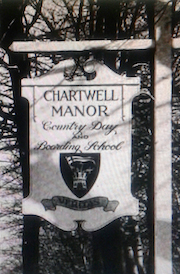
“Forgive and forget all the while, love and pain become one and the same in the eyes of a wounded child”
—Pat Benatar
*Some of the students’ names have been changed to protect their privacy.
Have you ever as a child, been so victimized by a caretaker that you carried the scar well into adulthood? Many of you have, so let me ask you this instead: What if you found out later on in life that other children had been terrorized to a greater extent than you had by that same person? Let’s add another layer: What if you suddenly learn that said perpetrator did prison time for some of the most egregious of his crimes? What would your emotional reaction be? Would you feel sorrow for those with the bigger scars? Would you feel relief or joy knowing that the abuser was punished? What happens when you realize that what happened to you could have been worse, and was for many others?
I went to a nightmarish, Kafkaesque boarding school when I was eight-years-old. I was a terrible kid, unquestionably, and needed to be separated from my younger sister, Laurie, for her protection. I was a breech birth. I had tried to exit the womb butt first, folded into two slabs of infant meat, with my feet pressed against my head. There was an oxygen shortage and as a result, I had minimal brain dysfunction, which later resulted in a severe behavioral disorder. Or maybe it happened because I fell in the bathroom when I was still a baby and hit my head on the tiled floor, hard. Could it be that my preexisting condition was exacerbated by my father’s unforgiving parenting style? Whatever the reason, I was a monster, but these issues didn’t’t surface until I was two, which is when my sister Laurie came into the world.
According to my parents, I was jealous of the new infant, and I would act out in ways that they weren’t equipped to deal with. I would engage in frequent tantrums, throw things and punch holes in my bright pink bedroom wall. I stopped eating most foods, especially vegetables. My father’s version of this is that it did it all for attention, even though that attention came in the form of a beating. I preferred negative attention to none at all.
As I got older I didn’t get along with other children. Rumor has it that I threw a brick at another child, and that I wasn’t nice to animals. But nobody suffered my wrath more than my little sister. My mother claims that from a very young age my father beat me mercilessly, and that I turned it around onto Laurie.
My parents’ marriage was an unholy union, to say the least. They fought constantly, and when I was five, my dad moved out, followed by acrimonious divorce proceedings. My mother had to take on the task of policing my sister and me on her own. After the divorce, my father moved to a slum in Piscataway, New Jersey, while we remained in Kendall Park. My sister and I only saw him once every other weekend, so my mother, for all intents and purposes, was a single parent. I can still remember a day when I was especially vicious to my sister. My mother was on her own with the two of us in tow. She needed to run a quick errand, and didn’t’t want to deal with the hassle of packing us up in the station wagon. I was seven-years-old and Laurie was five.
“Let me babysit,” I said.
“That’s a terrible idea,” my mother answered.
I begged. “Pleeeeeaaase? I promise I’ll be good”
Against what I suspect was her better judgment, she agreed. She was barely five minutes out the door when I was on top of my sister, who was lying on our grey velvet sofa, with my knees in her chest, pounding on her with closed fists and a dragon-like malevolence. For reasons I can’t recall, I really wanted to do damage. I was filled with an unidentifiable rage.
My sister’s harrowing screams must have been audible from outside the house because upon her return, my mother bolted through the door, made a B-line for the couch, pulled me off of my sister, and threw me to the floor. I don’t begrudge her that. I’d do the same thing as a parent. I still experience guilt for everything I did to Laurie, but that day stands out in my mind because I was so out of control, that I believe there was some chance I could have killed my sister if my mom had come home mere minutes later. It was a terrifying prospect for my mother. Geographical separation was the only effective solution, so at eight years old I was sentenced to Chartwell Manor for an undetermined amount of time.
* * *
Chartwell Manor, named for Winston Churchill’s estate, was located in the town of Mendham, New Jersey in Morris County. It was run by Terrence and Judy Lynch or as I like to call them, The Lynch Mob. I did three years time there before I was released. The headmaster was a sadistic British man in his thirties. He wore wire-rimmed glasses, spoke in a thick British accent, and had dark hair perfectly parted to one side. His body was slightly rotund and he had a round, cherubic shaped head, which gave him a deceptively innocuous appearance. We were instructed to refer to him only as “Sir”.
His wife Judy was a very large and curvy American woman. She had enormous breasts, a macro-booty and always wore a big, dark brown bun on the top of her head. She wore form-fitting, dark colored dresses. I had never seen such a big derriere in my entire life. Her hips moved so much when she walked it was easy to picture her shimmying down a narrow corridor, swinging them left and right, hitting the walls each time. She was cold, stoic and just as intimidating as her husband was. She rarely smiled, and sometimes beat the girls viciously. Although I never witnessed it first hand, one student claims that they saw her beat a girl with a riding crop for what felt like an eternity. Another stated that he and his friend looked on helplessly as she punched a twelve-year-old girl in the face, knocking her to the ground for the alleged crime of having kissed a boy. Judy wore a large diamond wring in the shape of a crystal doorknob, so her punches did some damage. Every time she entered a room, most of us were in the habit of disappearing, whenever that was an option.

“Sir” would have made a great post-apocalyptic dictator. It wasn’t until I was much older that I realized just how unhinged he was, and only very recently I discovered that he was far sicker than I had previously imagined.
I can still conjure up a pretty clear image of the day I was taken there for the interviewing process. We stood at the top of his majestic, sanguine colored staircase as he smiled at my mother and I with that phony, Muppet-like joviality. He looked a little to Pillsbury Dough Boyish for either of us to sense any type of peril.
The large, stone mansion was regal and elegant, stunning to some, I imagine. The building contained The Lynch’s living quarters, the classrooms and the boys’ dormitory. The foyer was huge, with classrooms to the left and a large dining hall to the left of the classrooms. Elegant French doors connected all three sections, and French windows graced the entire building. So did chandeliers. Red carpet covered every room in the building except for the dining hall and classrooms, which had painted brick and hardwood floors, respectively. The carpeting gave the place a Stephen King like quality and seemed to reflect The Lynch’s blood lust. It extended from the foyer to the double, wrap around, mansion style stairs, to all of the second and third floor hallways, which featured Sir’s office, the Lynch’s apartment, a payphone, and boys’ dormitories.
“Have you ever been to sleep away camp, Jennifer?”, Lynch asked me. I smiled and nodded. “Well this is a lot like that,” he said, grinning.
It turned out that except for the element of living away from home; it was nothing like sleep away camp. I had lived in several summer camps. I remember arts and crafts, roasting marshmallows, volley ball games, campfires and the lush greens of Pennsylvania campgrounds. I don’t remember ever having been beaten or humiliated by a person of authority at such a place.
As I ran in circles around the majestic staircase I overheard Mr. Lynch tell my mother, “Our specialty is hyperactives.” or something to that effect. As his eyes followed my frenzied little feet scurrying around, it didn’t occur to me at the time that he was probably thinking about the beating he’d be giving me, had not been for the presence of my mother. He saw a wild beast in me. I was the shrew, and he was damn sure going to tame me.
The boys outnumbered the girls about five to one. There were approximately sixteen girls and eighty boys, so the girls lived down the road in a separate little cottage, which was actually a five-bedroom house. Each room except for our housemother’s was color themed. There was a red, orange, green, and purple room. The walls were white, but the bedding and carpets had a color scheme. I lived in all of them at one time or another. There was a payphone for collect calls in the downstairs hallway.
The girls’ dorm was a kind of hell in and of itself, despite the lack of “Sir’s” presence there. There was only one bathroom where the older girls picked on me constantly; always trying to force me to take baths I didn’t think I needed. They called me names: “ugly”, “greasy hair” and others. We had a lovely housemother named Barbara Sainsbury for a brief time during my tenure there, but Olga Reimer, who was far more unpleasant than any of my coeds, soon replaced her. What a nasty old hag Olga was. She was also British, but much older than the Lynches. I don’t know what her relation to Sir was, but she was a pretty good stand-in for him in terms of excessive discipline. I remember wondering what was wrong with British people, having had such limited exposure to them at that time. I can vaguely recall her dragging me by the hair on more than one occasion. She loved to tell me what and idiot I was. “You’re an idiot, Jennifer. You really are. You really are an idiot!” she’d say in a piercing, high-pitched voice and hoity British accent.

In the beginning, I went home every weekend. I’ll never forget the first time I returned Sunday night sobbing in my mother’s car. My mother had moved us New York City, so it was a little over an hour’s ride to the school. After we drove up the long winding driveway and past the snow covered forestry that spanned the distance between the girls housing quarters and the mansion, I begged my mother not to leave me there. I wouldn’t even know how to describe the feeling of terror and abandonment. Mr. Lynch had no love for me. My mother had to drag me to the door and drive away as quickly as possible. Later that evening, I called my mother, still sobbing. Much like prison, collect calls were the only option.
I would dial zero and the number and when the operator came on line I’d say. “Hi, I’d like to make a collect call, my name is Jennifer.”
My mother always accepted the calls when she was home, at least it seemed that way. But she was back on the dating scene, so sometimes she was out and some babysitter would answer the phone. I hated those nights. On this particular evening I made the mistake of calling my mom from the mansion payphone, just down the hall from Sir’s office and the couple’s apartment.
“Mom please don’t make me stay here. I hate it here. I’m so homesick and they’re so mean!’’
“You’ll get used to it Jen, I promise. It’s just going to take some t…”
My mother barely made it through a sentence before Sir grabbed the phone from my hand and demanded that I go wait for him in his office. As I headed in that direction I heard him talking to my mother. He was eerily composed. “No worries, Mrs. Johnson. Jennifer is just a little agitated right now. I’m going to try and calm her down.” He hung up the phone.He stormed back to his office and began striking me left and right, mostly on my head and face. “How dare you make a scene like that?!” he told me. I begged him to stop hitting me and finally, after about five or six blows he shoved me out of his office. I practiced what I would say to my mother the next weekend when I went home again. This man was lying to parents. Surely, she would understand that this gulag was no place for her daughter.
Well I wasn’t withdrawn; in fact I started spending most weekends there. My parents decided that I needed to get used to the place, and that taking me home to be with my Mom or Dad was just too disruptive. I’m fairly certain Mr. Lynch was behind this decision. Like most sociopaths, he could be extremely charming and convincing when he had an agenda. Parents saw an entirely different person than we did. They saw Fred Rogers. We saw a draconian prison guard. Lynch could be so charming at times that many parents donated money to the school on a regular basis, and one student even told me that her mother had put the Lynches in her will. My mother believed that Mr. Lynch was a good disciplinarian who was acting in my best interest, and that my tales were just the result of the active imagination of children.
My mother was wrong, and I made all of my future calls from the girls’ dormitory. Shortly after my escape at age eleven the school was investigated for allegations of child abuse. In the year of 1976 Lynch’s accusers were unsuccessful in their pursuit of justice. What I discovered recently is that school did eventually shut down in 1984, when I was nineteen years old, after the headmaster Terrence Michael Lynch was sentenced to fourteen years of incarceration, for the ritualistic sexual and physical abuse of young boys. There is also a great degree of speculation that some of the worst abuses were never brought to trial and remain undocumented: incidents including sex trafficking and the creation of child pornography, which was all said to have taken place during Chartwell’s annual excursions to Europe.
Lynch only served seven years of his sentence and was released in 1997 only to become a volunteer at a Beginnings, a substance abuse rehab center where he molested grown men in a similar fashion, in spite of the fact that he was branded under Megan’s Law. Apparently, he wasn’t only a pedophile; anybody vulnerable was fair game. As reported by Kevin Coughlin, of The Daily Record a local Morristown paper, in 2009 three survivors of Beginnings received a total of 780,000 for the abuse they endured under Lynch’s care. More will be revealed later in the essay, but if you’re feeling curious, dubious, or impatient here is one of the sourced articles:
* * *
If I had to choose a room at Chartwell as the most ominous place on the campus, I’d have to go with the foyer. We would all stand there downstairs, on that god awful crimson carpet, lined up according to grade in our school uniforms for what Sir called assembly. The uniforms were absurd: navy blue blazers with the Chartwell Manor insignia, with grey skirts for girls and grey slacks for boys. Both sexes had to wear a tie. I looked ridiculous standing in front of the mirror. Who dresses like this? Was this a British thing too? Mr. Lynch would stand at his podium in all of his eccentric glory, and preach to us about nonsense.
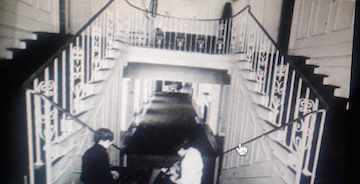
Assembly met several times a day. Of all the images of rooms at this school this one stayed with me the strongest, because it’s where Mr. Lynch was the least restrained and the most venomous. It was in this room that Mr. Lynch repeatedly subjected us to his terrifying psychobabble, knowing full well that many of us were too young to understand it. There was nowhere to go and nothing we could do about it unless we wanted beatings, so we would stand there and listen to him, until he dismissed us.
He was our personal evangelist preacher, only unlike a TV evangelist; we didn’t have the option of turning him off. I didn’t understand most of what he carried on about, but the gist of it was about debauchery and disobedience, and the subsequent consequences. Just like any talking head on The 700 Club, he used fear and propaganda to keep us in line.
He would start with a stern yet serene tone of voice, and then get progressively louder and more delusional, waving his hands around while he yelled about drugs, lust, or whatever his scourge du jour was. One of his favorite topics was the benefits of corporal punishment. He never tired of hearing himself “reassure” us that he beat us out of love.
I’ve been interviewing former students, and many of them actually believed that Lynch’s declarations of affection were genuine. While they feared Sir, they also considered him a father figure, and felt desperate for his approbation. According to some of the boys I interviewed, this betrayal of trust was perhaps the most detrimental aspect of the abuse. The pain that some carried around later in life was so unmanageable that many suffered from Stockholm Syndrome, with memories of the abuse repressed well into their twenties and thirties. A few former students responded to my research with reactionary contempt, which I can only imagine stems from the pain associated with these memories, and the need to suppress them.
Beyond the usual “If I don’t beat you, you won’t learn, and if you don’t learn you won’t survive in the world” bullshit, I mostly just recall random words during these assemblies. The only other word group that comes to memory was “Fuck fuck fuck! Lovely, lovely!” His hands seemed to fly every which way as he said it. He was trying to make a point about how ugly curse words were, and what sinners we all were for using them. Other words that I recall hearing were “sin, lust, bedlam, anarchy, drugs, honor, whore, virgin, pure, slut, zeppelin, woman, and temptation.
Terrence Michael Lynch was the first to teach me about the virgin/whore complex. As far as he was concerned girls should be “pure.” He spoke with great contempt about a girl from his school days called “Mattress Mary” who he referred to as a “slut.” The oldest students at Chartwell were 15-years-old. Since teenagers are wired to be both sexual and curious, some heavy petting was inevitable, and occasionally one of the female students was made an example of, in the worst way imaginable. First they were slut shamed in front of the whole student body, and then beaten. I can’t remember the exact words Sir used, but at eight-years-old I knew what a tramp was, and I knew that you could only be one if you were a girl. I also knew that if you did happen to be one of the girls caught in some teenage dalliance sanctioned by Mother Nature, Sir would convince the rest of us that you were a Jezebel of the worst kind, capable of the darkest of sexual transgressions. Yes, we were the perverts: Projection in action: Calling Dr. Freud! What occurs to me now is that Sir was jealous of girls, because they were the object of the boys’ affections. Judy Lynch was said to have done routine “virginity checks” on some of the older girls. Officials tried to make a case against her as well, but the state lacked witnesses who were willing to testify.
I can’t remember which fundamentalist brand of Christianity Sir embraced, but in light of the fact that I now know that was a convicted sex offender, it’s so much easier to connect the psychopathic dots. It’s fairly common knowledge that there is a strong link between sexual repression and sexual deviation, and the more an orator follows the narrative that “sex is dirty and shameful” the bigger pervert he either currently is, or is destined to become. You know the saying: “Me think thou art protest too much” or something like that. While I attended Chartwell there were at least two girls who were either expelled or withdrawn for sexual “indiscretions”. The official story was that they were expelled, but I knew what a pathological liar Sir was, so I questioned everything.
Dianna Carrington and Courtney Abbot both left Chartwell Manor for these reasons, but not before they were branded with both a physical and psychological Scarlett Letter. Bruising students was commonplace. I remember going home with a giant bruise on my ass, although on that particular occasion it was Mrs. Lynch who had savaged me. My mother was strangely unaffected when I showed it to her. Shortly after Dianna left, her parents decided to take Sir to court. They were not impressed with the welts on their daughter’s backside. The girls were set to be witnesses. Some time before her parents were scheduled to come The Lynches pulled all the girls into a classroom for “rehearsal.”
“Miss Carrington’s parents are going to ask some of you some questions.” Sir told us. “They’re going to ask you if we beat you here and you’re to tell them that we don’t. Is that clear?”
We all nodded in agreement. Nobody was going to martyr herself to this cause. Thankfully, Dianna’s parents never approached me. I don’t think I would have been brave enough to tell them the truth.
* * *
Assemblies were bad enough when Sir just went on some random diatribe, but once in a while he required an actual victim: someone to accuse, mock or terrify for no good reason. I can remember at least two times when I was the victim of choice. I was one of the students he hated, so I was targeted disproportionately. Nothing was more dreadful than being singled out as this man’s personal plaything, especially in front of the whole school. I had seen him do it to others.
Even at eight I was enough of an independent thinker to know that something was horribly wrong, even when he targeted other students. I had seen him make an announcement that someone clogged up one of the boys’ toilets, and then look around for a scapegoat. It didn’t take him long to point to a eleven-year-old and say “Mr. Green, you have a very guilty look on your face! Go up to my office and wait for me.!“ This is how Mr. Lynch adjudicated our alleged crimes. Apparently, he wasn’t a big fan of the American justice system, where actual evidence is required before a sentence is passed.
Not much later, I was accused of a more serious crime. During the weekends most of the students went home, so the girls would sleep in the empty boys’ rooms in the mansion dormitory. During such a weekend, a male student’s belongings were ransacked and his musical apparatus was smashed. I knew nothing of it and had nothing to do with it, but damned if Il Duce let that get in the way of administering his own special style of justice. After he ranted about the alleged vandalism that took place, he announced without hesitation that I was the guilty party.
“Miss Johnson!” he said. “You broke that boy’s radio just because you didn’t have one of your own! Get up to my office! We’ll be docking your student account to replace it!”
So just like that I was simultaneously losing money, having the entire student body turned against me, AND I was getting a beating? The combination of rage and fear I experienced was unimaginable, because I was so angry I wanted to kill him, but also so terrified all I could mutter was “But I didn’t do it! It wasn’t me! It wasn’t me!” which as you can imagine, was not effective.
I never went up to his office so I didn’t receive that beating. I refused to get a beating with a wooden hairbrush for something I just didn’t do. Luckily, he had so many other kids to beat or violate that day that he must have forgotten about it. I later discovered that it was commonplace for some of Lynch’s former victims to return to the school, often in a drug or alcohol addled state, in order to vandalize the property and steal cars, money and other things. In all likelihood I was taking the rap for someone Lynch no longer had access to.
One of final acts of retaliatory vandalism against the Lynchs: Terrence and Judy’s gravestone was “christened” by a former student.
Calls to my mother were frequent. “When can I come home?” I asked after returning from Thanksgiving break. My homesickness was always worse after visiting my mom or dad.
“Christmas,” she said.
“Christmas?” I asked. “Christmas is like six weeks from now.’’
“It will go by fast, you’ll see,” she said.
Sometimes I begged her. “Let me come back home,” I’d say. “I promise I’ll be good.” But she’d heard that before.
Christmas break would come and go with all the excitement and subsequent heartache that came with seeing family for only a couple of weeks. Christmas and summers were the longest breaks I got from Chartwell, but the longer I was home the harder it always was to go back, although after the first year I was more resigned to the sadness. I believe the psychoanalytic term is “learned helplessness” It wasn’t like my parents were going to listen to me anyway.
The aforementioned bruise was a consequence of smoking. At the time I lived upstairs with the older girls: Karen, Anita and “slutty” Courtney. There were four of us in the room, and sometimes some of the boys would sneak down from the mansion to the girls’ dorm in the middle of the night. We had a ledge right outside our window, where the boys would hang out, although I have no idea how they got up there in the first place. My roommates and the boys woke me from the deepest of slumbers. I let out a grunt. I was tired.
“Go back to sleep. You’re dreaming,” Courtney would say over and over again. Eventually I was fully awake. There wasn’t much point in trying to sleep. The girls were all up smoking and talking. I had little interest in smoking at the time, but Courtney said “She’s a witness, so she has to take a security drag.” So I did. I sucked on a cigarette and blew out the smoke immediately without inhaling. The very next morning after my roommates had gone Olga entered the room to do some cleaning and began sniffing.
“I smell cigarettes. Jennifer, were any of the girls smoking in here? I had intended to lie, but became so nervous I just gulped a little and then heard myself saying “Yes” in hesitant, almost whisper like tone.
Later that day all four of us were beaten with the wooden side of a hairbrush. We all sat in the Lynch’s living room and when it was our turn, Mrs. Lynch took us to their bedroom and ordered us to lift our skirts and pull down our underwear. She remained very quiet during the beatings. She hardly uttered a word the entire time we were all in there. Sometimes the quietist villains are the scariest. When my turn came around I tried to block the first blows with my hands, but that hurt just as much. The burn on my ass was intense and I screamed. It was the worst pain I’d ever experienced. I’ve never been so relieved as I was the minute it was over. I don’t know how many lashes I received, probably about ten, but I believed that the grapefruit size bruise that spanned both cheeks had a story to tell.
Child protection laws rendered it illegal to leave long lasting marks, especially bruises. I don’t remember how, but I was familiar with these laws, so I assumed that naturally, this would be the tipping point for my mother. She couldn’t ignore bruises like that, could she? Her reaction to the bruise was similar to all of my other complaints of abuse. “What did you do?” or “I’m sure they didn’t mean to leave a bruise like that.” I think she felt trapped and conflicted with her lack of choices, which caused her to ignore inconvenient truths. How else does one justify such victim-blaming statements?
On another occasion Sir saw fit to humiliate me during an assembly, for no reason in particular. He was explaining that a new girl from a foreign country had just become a student, but didn’t speak any English.
“You have to talk softly to her,” he said. “Not like Jennifer Johnson. Don’t say ‘Helloooo!’” he said, while making loud, guttural sounds, as though he were mimicking an actual monster. The students laughed as I teared up. It didn’t seem to matter that I was the new girl’s only friend, and had been spending my free time taking her around, pointing to objects and saying them in English so she could repeat and learn, which she seemed to greatly appreciate. I was absolutely mortified. After the laughter died down he asked, “Is Jennifer crying yet?” with a big shit eating grin on his face. To his great satisfaction, I was.
Mr. Lynch did this to me on more than two occasions, but these were the most memorable. Perhaps my behavioral problems were so severe that I deserved a beating now and again. But I can’t recall any “fair” beatings. Justified disciplinary actions are far less eventful than flagrant acts of abuse, so the abuse what I remember.
The thing is, I knew he was wrong. I knew that what was happening to me was not normal. I knew it was unjust. I often wonder if this has something to do with the fact that I was raised without religion. Most kids accept what happens in their childhoods as the norm, but I had a better bullshit detector than most, and I wasn’t even remotely impressed with fake father figures with misguided God complexes. I hated the man, through and through. I understood his intentions.
* * *
I can’t remember why, at the age of eleven I was finally withdrawn. Maybe my mother’s guilt got the better of her, or maybe she believed that I would be less violent after living in such punitive, despotic circumstances. I honestly don’t recall many the details of my visits home because as bad as they might have been, it was always better to be home. For this reason, I can’t reliably tell you if I struck Laurie less often or with less malice during visits home or after my tenure at Chartwell. What I can tell you is that I was still a very angry child, probably more so than I had been previously.
What I didn’t figure out until adulthood was that the man was just bat shit crazy. Before that, I was too busy reflecting on how evil he was and how much he had hurt me. I didn’t have the emotional resources left to consider his illness. After some processing, the guilty verdict remains in tact. I have no pity for the man and his sickness. He’s harmed too many people to cash in on any of my empathy. As one victim stated, “ The ruined lives this guy is responsible for is staggering.”
Brendan Burt was a student in the early eighties right before the school was shut down. He told me that Lynch would routinely bring him into his office, order him to pull down his pants, fondle his genitals, penetrate his anus with his finger and then beat him. He also informed me that on one occasion Lynch threatened to break his mother’s arm if he told anyone about the abuse, and that sometimes after beatings Lynch would congratulate him for “taking it like a man.”
Perhaps one of the most disturbing accounts revolved around a year long epidemic of bowel incontinence that took place in the boys’ dormitories. According to Brendan, some of the boys were defecating in their beds, and the afflicted students were all assigned to designated rooms. “Those rooms should have been quarantined,” he recounted, since the odor was so foul. None of the girls were affected, which suggests it was not the result of a contagious illness. At first I thought it must have been caused by rectal damage resulting from sodomy, but an equally plausible scenario is that it was psychosomatic; students were soiling themselves to keep Lynch away from their rectums. Apparently, some students just stopped wiping themselves after a bowel movement, probably to the same end.
I understand that Lynch died in 2011 after becoming very ill during a trip to Cuba. The official story is that he went there with a group of missionaries, but it is widely suspected that this trip was intended as a sex tour for pedophiles, although I cannot confirm or deny this.
* * *
The worst part about this for me is that my mom had always been dodgy when it came to being accountable for having sent me to this school in the first place. We had blowouts about it every Christmas for a while, until my stepfather Phil, made a point of convincing my mother to accept some blame for what had happened.
I remember wailing, sitting on our soft off-white sectional sofa, all facing one another surrounded by ravaged gift-wrapping paper and an all-white-lit Christmas tree several feet away. I don’t remember how the conversation started, but I remember saying something like “I came home with a huge bruise on my ass and you sent me back!”
“How do you know you had a bruise? How could you see it?” Yeah, she really asked me that.
“In a mirror!” I said
“What mirror?” my mom answered.
At this point my stepfather Phil intervened. “Gretchen!” he said with a shocked look.
This was the Christmas that put this subject to rest. By her own admission, Phil was the only man my mom ever really loved. She didn’t love my father or my first stepfather. Phil was her one and only true love, so his opinion mattered. My mom realized that this was the time to stop belittling me, and take my complaints about Chartwell seriously. I was about twenty-two or twenty-three and this was the first robust apology she’d ever given me. It was heartfelt, and all I ever needed from her.
“I’m sorry Jen, I’m sorry I sent you to such a horrible place. If I had to do it over I would choose another option. I wish I could take it back, but I just can’t. I was a young mother and I didn’t know how to control the situation. I had no support from your father or anyone else. The seventies were a very mother-blaming era. I thought I was doing the right thing at the time.”
There was truth to a lot in that. They didn’t know then what they know now about ADHD. Every time there was something wrong with a kid it was just assumed that the mother was fully culpable. My mother was working full-time, taking care of my sister, and going through rancorous court proceedings with my father regarding retroactive, unpaid child support. Consequently, she had deluded herself into thinking that a military type environment would protect Laurie for a time and set me straight. She was correct about the former, but mistaken about the latter.
* * *
I googled “Chartwell Manor boarding school abuse” just recently, and several articles popped out at me. In the internet age with so much information at my disposal, I wonder why I never considered doing this earlier. All these years it was just a button tap away. It might have given me better clarity into the depths of Lynch’s twisted inner workings. I guess I thought it was all behind me.
According to an article published in 2006 by Peggy Wright also from the Morristown, New Jersey Daily Record, boys were routinely lined up naked, beaten, and molested through various ceremonial manifestations. As Wright points out, Michael Uhl described Lynch as having “a forceful, hypnotic quality that compelled students to obey him, even when he bent them over his knee to beat them with a slipper, his hand, a brush or paddle”. The article also explains that Lynch “went to prison for seven of a 14-year sentence for sexually abusing boys by spanking them, squeezing their genitals, or giving them enemas.”
I spoke to Mr. Uhl on the phone for five hours recently. Due to the statute of limitations, Uhl was the only student from our era to successfully sue Lynch. His lawyer argued that the memories of the abuse were so painful that Uhl had repressed them until his twenties,
so effectively that he was sending Lynch yearly Christmas cards, even after he had been incarcerated for his crimes. Lynch used various techniques to indoctrinate students. What I remember specifically is being forced to watch the Sidney Poitier movie “To Sir With Love” every year. I also remember graduation ceremonies, where graduates were forced to sing “Thank You Very Much” from “A Chorus Line”. Our yearbooks were filled with self-aggrandizing statements written by and about Lynch in the third person. The pervasive theme in all these examples seemed to be the unending gratitude we should all feel for a person who was essentially, our kidnapper.
Some of Wright’s anecdotes came from students like Andrew Fleisig who claimed he got a “bare-bottomed spanking” just for crying when he arrived at Chartwell for the first time. Sound familiar? Student Glenn Head, who attended Chartwell around the same time I did, claimed that Lynch was fond of “beating the boys, and then cuddling them when they cried.”
Some students claim that they were commanded to masturbate in front of Lynch, while others say that he forced them to perform oral sex on him. Still others have stated that Lynch sodomized them. The school offered an annual trip to Europe for one thousand dollars, which was a lot of money at the time. My parents were broke, so I never went myself. In retrospect I’m grateful for my parents financial limitations, because some-of the worst abuse was said to have occurred on these trips. Since laws regarding the consumption of alcohol are more relaxed in Europe, Lynch allowed the students to drink beer and wine. One student claimed that he was drugged, raped and filmed by a group accompanying Lynch. That student has since committed suicide. He confided in Uhl about the incident, and for this reason I am unaware of his identity. Since then, I have heard of at least four other boys who took their own lives sometime after leaving Chartwell. I did specifically seek out information about suicide in my research. This was all mentioned to me through casual conversation. If you consider the fact that the percentage of former students who are in touch with one another is a mere fraction of all Chartwell alumni, it would be logical from a mathematical standpoint to assume that there were many more, perhaps dozens who took their own lives.
Many students such as Sam Jacobs and Kevin Steiner struggled with substance abuse. Some became criminals. Kevin Steiner died in a car accident, during which time he was in and out of rehab and stealing cars. At one point he stole Lynch’s cars. Sam Jacobs became a convicted rapist at the age of 14, mere weeks after Lynch had sodomized him.
Brendan internalized the blame and engaged in self-sabotage in the form of heavy drug abuse. He didn’t know why until the age of 30, when visions of Chartwell were revealed in a dream. “I barely slept for the next three years,” he told me. Both Mike Uhl and Brendan Burt had managed to keep the memories at bay until adulthood, but in both cases all their recollections came flooding back in a single defining moment, like an emotional tsunami. In Uhl’s case it occurred when Lynch sent him an odd, metaphor riddled, parable from prison, which contained a strange message about embracing victimhood.
But Lynch abused children even before the creation of Chartwell Manor. Bill Moore was a Jewish sixth grader in the 1960s at Somerset Hills School in Warren, Somerset County where according to former teacher Jerry Amedeo Lynch was fired when the owner discovered he was spanking children. The sexual abuse was only discovered after Lynch left, when students felt safe enough to start talking. Not only were students beaten, forced to parade naked together and selected to cuddle in bed with Mr. Lynch for intimate TV time, Wright explains how Moore described a scene to him where “Lynch would hold part of a comb to his upper lip and imitate Adolf Hitler.” In 2006 Lynch volunteered at an adult rehab center called Beginnings where he molested men, presumably because he no longer had access to children.
His Beginnings victims say he posed as a real doctor to facilitate molestation, and asked to be called “Dr. Mike” In an ironic twist; it was Lynch’s parole officer that landed him the position at Beginnings, on account of his “experience” as a headmaster, in spite of his status as a registered sex offender. Lynch pleaded guilty to three fondling charges, after which he did spent only ten months in a county jail. The short sentence probably had something to do with how well he was well connected with the local police, to whom he gave expensive bottles of scotch every Christmas.
* * *
The year of 1984 completed almost two decades of Lynch abuse that fell under the radar of law enforcement. I was nineteen that year, and wished I’d heard about his incarceration then. It might have given me some closure earlier. I also might have been able to write this essay while the Lynches were still alive, exposing them to the entire country. I had never realized that I was actually one of the lucky ones. There are undoubtedly countless survivors as well as causalities.
“Sir” Terrence Michael Lynch is dead and in the ground, but his legacy of tyranny will live on a long time. According to extensive psychological research, it is likely that many victims’ stories will bleed into generations of families to come. Jacobs is a case in point.
After a great deal of research I discovered that Sam started sexually abusing girls in early adolescence and at fourteen, raped a girl at knifepoint. According to Sam, Lynch had attempted to sodomize him shortly before, but was unable to complete the act, because Sam screamed so loudly from the pain that Lynch retreated for fear of exposure.
“He would beat me, molest me, and then rub my butt and tell me how much he loved me,” Sam told me. “He was like a father figure.”
“That’s probably what fucked you up the most,” I said.
“It definitely is,” he responded.
Sam committed his first offense as an adult in the year of 1977 and spent ten years in prison. As far as I’m concerned, this is Lynch’s handiwork. I don’t excuse Sam for his behavior, as I believe he made a choice to rape. I firmly believe however, that he would not have become a rapist if it weren’t for the years of abuse he endured.
Sam was released from a treatment facility in 1987 and in 1994, married and had a daughter, but was divorced shortly thereafter on account of heavy drug and alcohol use. He was re-incarcerated from 2002-2006 on a stalking charge. According to court documents from 2006 and 2009, Sam was sentenced to remain at a sex offender treatment facility under a civil commitment mandate, in spite of the fact that he had completed his prison sentence and hadn’t committed an actual sex crime in decades. Because of the stalking incident, the court decided that he was still a sexually violent predator, even though the stalking charge was ruled as a non-sexual. He is still being detained today.
Sam and I talk on the phone a lot these days. He told me that Lynch abused him sexually, physically and emotionally with frequency and severity. “ I don’t hate women,” he told me. “When I raped those girls I never really wanted to hurt anybody. Some of them fought back and I let those girls go, because I didn’t want to be violent. I didn’t realize that rape was violent or harmful. I was insecure and didn’t know how to talk to girls. Lynch took away all my control. I thought this was the only way to get it back. I thought it was the only way to prove that I was a man.”
“Didn’t your victims cry?” I asked him.
“No, actually, they just begged me not to hurt them. I told them I didn’t want to hurt them. During my incarceration I underwent a lot of therapy. It wasn’t until then that I realized what kind of damage I had done. Before that, I actually believed that they enjoyed it. I even went down on a few of them before I raped them, so it could feel more like seduction than rape”
Earlier, I had sent Sam a heartfelt letter along with a copy of my latest version of the memoir and some copies of articles regarding Lynch’s incarceration. He said that the pictures of Lynch in the article filled him with terror and that he cried when he read my letter. I don’t think he is accustomed to people treating him with empathy.
“Sam,” I said. “You do realize that when your victims see pictures of you they have the same visceral reaction. You get that, right?”
“I do now,” he said. “I really regret hurting those women. I was an asshole.”
Sam Jacobs was a handsome, young boy. When he was only four years old his father put him in Lynch’s care at Somerset Hills where Lynch was then headmaster. After Lynch was fired from Somerset and created Chartwell Manor, Sam’s father allowed Lynch to take his son with him. Research conducted over a number of years indicates that a child’s conscience and capacity for empathy is not fully formed before the age of six. Some people remember a very different Sam Jacobs than the one that the psychologists, lawyers and inmate staff know today.
The Sam Jacobs I briefly knew as a kid was sweet and playful, never mean spirited; at least not to me. There were plenty of bullies there. He was not one of them, despite the fact that I was an awkward, skinny little girl with buck teeth, six years his junior, who was bullied by many. Amedeo, who was also Sam’s teacher from Somerset recalls Sam as “a great kid.” Lynch robbed Sam of both his innocence and humanity. He never stood a chance. His tragic story gives a whole new meaning to the phrase “school to prison pipeline”
So how do I think and feel, now that I know what I know? I’m sad for his male victims, but thankful that he didn’t molest girls, at least as far as I know. As unpleasantly as I experienced those three years, I take comfort in the fact that I wasn’t a young boy or teenage girl at Chartwell Manor. I now wonder how many former students have become pedophiles themselves. I’m happy Lynch did some hard time, but I wish it had been longer. I’m disgusted that a registered sex offender was given the freedom to abuse again with such apparent ease and negligent oversight.
How many other victims are now out there hurting people? And who will their victims hurt? How many lost, broken Lynch souls are running amok without refuge? These are questions few of us can answer. We only know that the infamy of the man we knew as “Sir” and “Dr. Mike” is likely to live on well after our lifetimes, and that is the most unsettling aspect of all.
BIO
 Jennifer Elizabeth Johnson has a BA in sociology, studied creative writing at Austin Community College. She currently lives in Newark, New Jersey. She’s lived in five countries and is a cinephile who believes that dubbing movies in another language is a grave crime against art. She wishes Bernie Sanders was her father.
Jennifer Elizabeth Johnson has a BA in sociology, studied creative writing at Austin Community College. She currently lives in Newark, New Jersey. She’s lived in five countries and is a cinephile who believes that dubbing movies in another language is a grave crime against art. She wishes Bernie Sanders was her father.

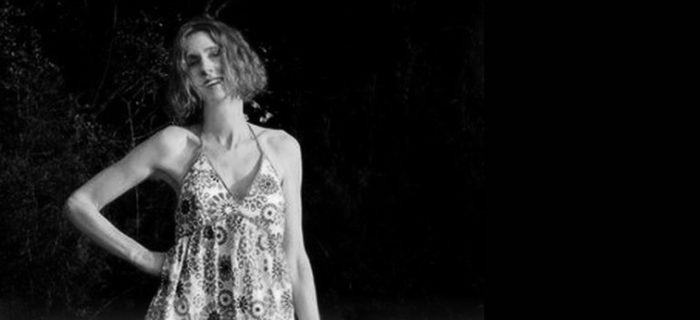

 Janet Hope Damaske is a stay-at-home mother with interests in writing, reading, editing and psychology. After earning her BA in psychology with a minor in creative writing at Hamilton College, she worked for several years at a rehabilitation center for people with mental illness, providing job training and running a writer’s group for creative therapy. She later moved onto a career in medical publishing, where she continues to work part-time. Janet currently volunteers with several non-profit organizations in her hometown of Winchester MA, where she lives with her husband and two children. She writes a blog, which can be found at
Janet Hope Damaske is a stay-at-home mother with interests in writing, reading, editing and psychology. After earning her BA in psychology with a minor in creative writing at Hamilton College, she worked for several years at a rehabilitation center for people with mental illness, providing job training and running a writer’s group for creative therapy. She later moved onto a career in medical publishing, where she continues to work part-time. Janet currently volunteers with several non-profit organizations in her hometown of Winchester MA, where she lives with her husband and two children. She writes a blog, which can be found at 
 D.G. Geis lives in Houston, Texas. He has an undergraduate degree in English Literature from the University of Houston and a graduate degree in Philosophy from California State University. His poetry has appeared or is forthcoming in Fjords, Memoryhouse, 491 Magazine, Lost Coast, Blue Bonnet Review, The Broadkill Review, A Quiet Courage, SoftBlow International Poetry Journal, Blinders, Burningword Literary Journal, Poetry Scotland (Open Mouse), Crosswinds, Scarlet Leaf, Zingara, Sweet Tree, Atrocity Exhibition, Driftwood Press, Tamsen, Rat’s Ass, Bad Acid, Crack the Spine, Collapsar, Grub Street, Slippery Elm, Ricochet, The Write Place at the Write Time, Steam Ticket, Razor, Origami, Matador, Cheat River, Euphemism, Two Cities, The Hartskill Review, Sugar House, Literary Orphans, Dash, Zabaan, Clare, Panoplyzine, Boston Accent, Silkworm, Drylandlit, Permafrost, Gingerbread House, and The Machinery. He will be featured in a forthcoming Tupelo Press anthology of 9 New Poets and is winner of Blue Bonnet Review’s Fall 2015 Poetry Contest. He is also a finalist for both The New Alchemy and Fish Prizes (Ireland).
D.G. Geis lives in Houston, Texas. He has an undergraduate degree in English Literature from the University of Houston and a graduate degree in Philosophy from California State University. His poetry has appeared or is forthcoming in Fjords, Memoryhouse, 491 Magazine, Lost Coast, Blue Bonnet Review, The Broadkill Review, A Quiet Courage, SoftBlow International Poetry Journal, Blinders, Burningword Literary Journal, Poetry Scotland (Open Mouse), Crosswinds, Scarlet Leaf, Zingara, Sweet Tree, Atrocity Exhibition, Driftwood Press, Tamsen, Rat’s Ass, Bad Acid, Crack the Spine, Collapsar, Grub Street, Slippery Elm, Ricochet, The Write Place at the Write Time, Steam Ticket, Razor, Origami, Matador, Cheat River, Euphemism, Two Cities, The Hartskill Review, Sugar House, Literary Orphans, Dash, Zabaan, Clare, Panoplyzine, Boston Accent, Silkworm, Drylandlit, Permafrost, Gingerbread House, and The Machinery. He will be featured in a forthcoming Tupelo Press anthology of 9 New Poets and is winner of Blue Bonnet Review’s Fall 2015 Poetry Contest. He is also a finalist for both The New Alchemy and Fish Prizes (Ireland).
 Paisley Kauffmann lives and writes in Minneapolis, Minnesota. Life provides her with millions of bits and pieces to stitch together into stories. Her short stories have been published in The Talking Stick and The Birds We Piled Loosely. She writes with one of two pugs in her lap and receives gracious feedback from her husband. The Loft Literary Center, the Minnesota writing community, and her writing group support and fuel her motivation.
Paisley Kauffmann lives and writes in Minneapolis, Minnesota. Life provides her with millions of bits and pieces to stitch together into stories. Her short stories have been published in The Talking Stick and The Birds We Piled Loosely. She writes with one of two pugs in her lap and receives gracious feedback from her husband. The Loft Literary Center, the Minnesota writing community, and her writing group support and fuel her motivation.
 Claire Tollefsrud is an undergraduate student working on a double major in Psychology and Creative Writing. Storytelling has always been a passion of hers. She also enjoys Tae Kwon Do, singing, and going on small, everyday adventures.
Claire Tollefsrud is an undergraduate student working on a double major in Psychology and Creative Writing. Storytelling has always been a passion of hers. She also enjoys Tae Kwon Do, singing, and going on small, everyday adventures.
 Bethany W. Pope is an award-winning writer. She received her PhD from Aberystwyth University’s Creative Writing program, and her MA from the University of Wales Trinity St David. She has published several collections of poetry: A Radiance (Cultured Llama, 2012) Crown of Thorns,(Oneiros Books, 2013), The Gospel of Flies (Writing Knights Press 2014), and Undisturbed Circles(Lapwing, 2014). Her collection The Rag and Boneyard, shall be published soon by Indigo Dreams and her chapbook Among The White Roots Will be released by Three Drops Press next autumn. Her first novel, Masque, shall be published by Seren in 2016.
Bethany W. Pope is an award-winning writer. She received her PhD from Aberystwyth University’s Creative Writing program, and her MA from the University of Wales Trinity St David. She has published several collections of poetry: A Radiance (Cultured Llama, 2012) Crown of Thorns,(Oneiros Books, 2013), The Gospel of Flies (Writing Knights Press 2014), and Undisturbed Circles(Lapwing, 2014). Her collection The Rag and Boneyard, shall be published soon by Indigo Dreams and her chapbook Among The White Roots Will be released by Three Drops Press next autumn. Her first novel, Masque, shall be published by Seren in 2016.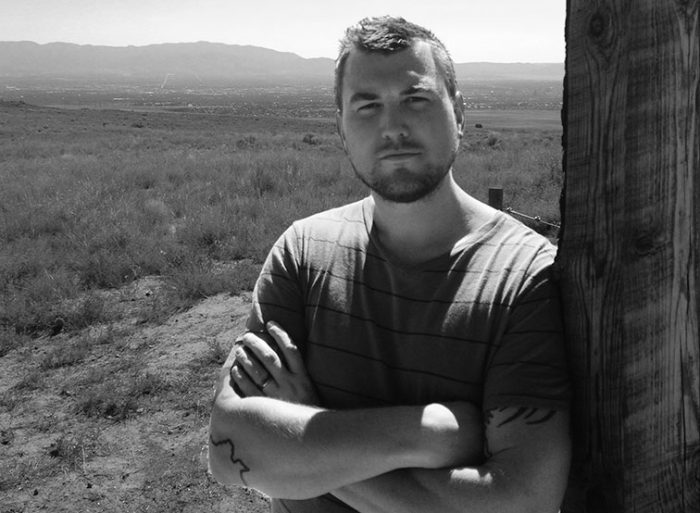
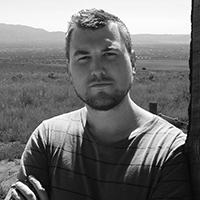 Lucas Shepherd is an MFA student at the University of New Mexico. His creative work has appeared or is forthcoming in The Atlantic, Aldous Huxley Annual, and Conversation Noises. These and more can be found on his website, lucas-shepherd.com. He is now completing a novel, West by Midwest, about demolition derby and redemption.
Lucas Shepherd is an MFA student at the University of New Mexico. His creative work has appeared or is forthcoming in The Atlantic, Aldous Huxley Annual, and Conversation Noises. These and more can be found on his website, lucas-shepherd.com. He is now completing a novel, West by Midwest, about demolition derby and redemption.









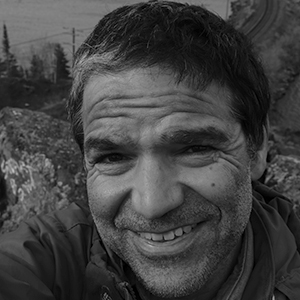 Born and raised in Sioux Lookout, Ontario, John Tavares is the son of Portuguese immigrants from Sao Miguel, Azores. His formal education includes a two-year GAS diploma from Humber College with concentration in psychology, a three-year journalism diploma from Centennial College, a Specialized Honors BA in English from York University. He’s worked as a research assistant for the Sioux Lookout Public Library and the Northwestern Ontario regional recycle association with the public works department. He also worked with the disabled for the Sioux Lookout Association for Community Living. Meanwhile, his short fiction has been published in a wide variety of “little magazines” and literary magazines, online and in print, in the United States and Canada. Following journalism studies, he had articles, photography, and features published in East York Observer, East York Times, Beaches Town Crier, East Toronto Advocate, Our Toronto – as well as community and trade newspapers such as York University’s Excalibur and Hospital News, where he interned as an editorial assistant. John recently wrote a novel.
Born and raised in Sioux Lookout, Ontario, John Tavares is the son of Portuguese immigrants from Sao Miguel, Azores. His formal education includes a two-year GAS diploma from Humber College with concentration in psychology, a three-year journalism diploma from Centennial College, a Specialized Honors BA in English from York University. He’s worked as a research assistant for the Sioux Lookout Public Library and the Northwestern Ontario regional recycle association with the public works department. He also worked with the disabled for the Sioux Lookout Association for Community Living. Meanwhile, his short fiction has been published in a wide variety of “little magazines” and literary magazines, online and in print, in the United States and Canada. Following journalism studies, he had articles, photography, and features published in East York Observer, East York Times, Beaches Town Crier, East Toronto Advocate, Our Toronto – as well as community and trade newspapers such as York University’s Excalibur and Hospital News, where he interned as an editorial assistant. John recently wrote a novel.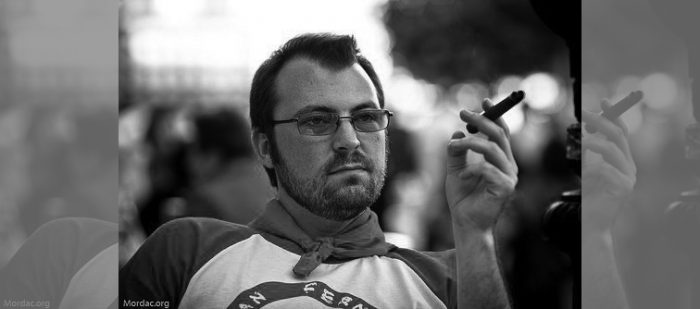
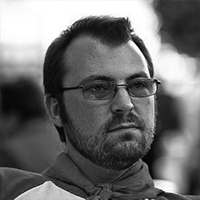 T.E. Winningham holds a PhD in Literature from the University of Southern California and a BA from the University of Iowa. His work has appeared in Fourth Genre, Anamesa, and the Overtime Chapbook series, among other journals. He currently lives in Los Angeles.
T.E. Winningham holds a PhD in Literature from the University of Southern California and a BA from the University of Iowa. His work has appeared in Fourth Genre, Anamesa, and the Overtime Chapbook series, among other journals. He currently lives in Los Angeles.
 Brad Rose was born and raised in Los Angeles, and lives in Boston. He is the author of Pink X-Ray, Big Table Publishing, 2015 (www.pinkx-ray.com). Twice nominated for a Pushcart Prize in fiction, Brad’s poetry and fiction have appeared in The Los Angeles Times, Folio, decomP, The Baltimore Review, The Midwest Quarterly, Lunch Ticket, San Pedro River Review, Off the Coast, Heavy Feather Review, Posit, Third Wednesday, Boston Literary Magazine, Right Hand Pointing, The Molotov Cocktail, and other publications. Brad is the author of three electronic chapbooks, all from Right Hand Pointing: Democracy of Secrets,
Brad Rose was born and raised in Los Angeles, and lives in Boston. He is the author of Pink X-Ray, Big Table Publishing, 2015 (www.pinkx-ray.com). Twice nominated for a Pushcart Prize in fiction, Brad’s poetry and fiction have appeared in The Los Angeles Times, Folio, decomP, The Baltimore Review, The Midwest Quarterly, Lunch Ticket, San Pedro River Review, Off the Coast, Heavy Feather Review, Posit, Third Wednesday, Boston Literary Magazine, Right Hand Pointing, The Molotov Cocktail, and other publications. Brad is the author of three electronic chapbooks, all from Right Hand Pointing: Democracy of Secrets, 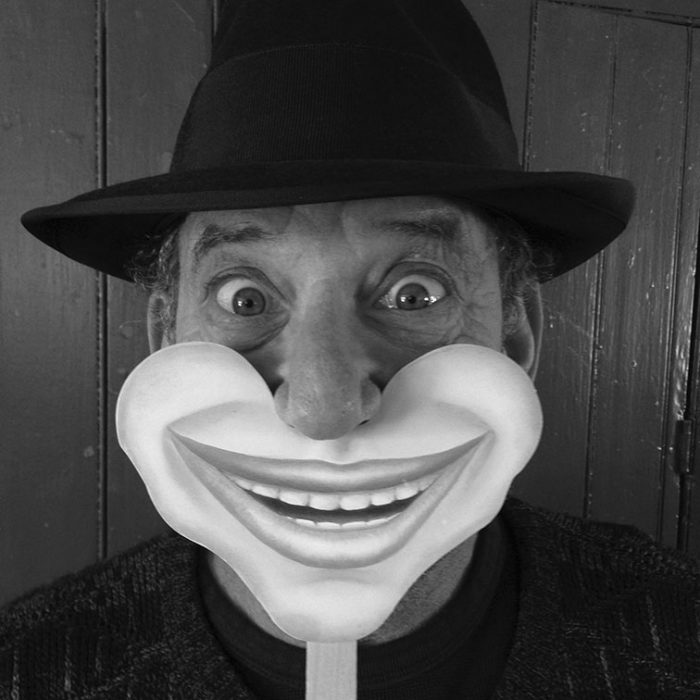
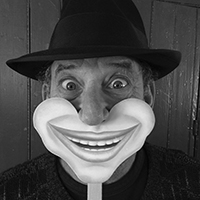 Mitchell Krockmalnik Grabois has had over a thousand of his poems and fictions appear in literary magazines in the U.S. and abroad. He has been nominated for the Pushcart Prize, The Best of the Net, and Queen’s Ferry Press’s Best Small Fictions for work published in 2011 through 2015. His novel, Two-Headed Dog, based on his work as a clinical psychologist in a state hospital, is available for
Mitchell Krockmalnik Grabois has had over a thousand of his poems and fictions appear in literary magazines in the U.S. and abroad. He has been nominated for the Pushcart Prize, The Best of the Net, and Queen’s Ferry Press’s Best Small Fictions for work published in 2011 through 2015. His novel, Two-Headed Dog, based on his work as a clinical psychologist in a state hospital, is available for 




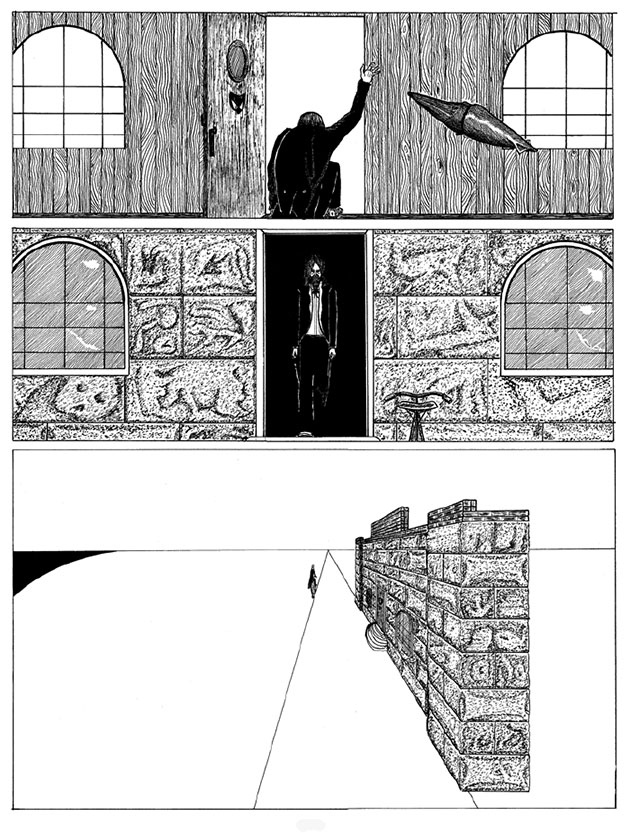
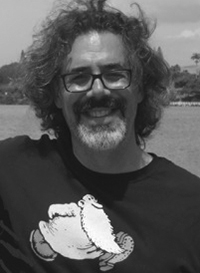 Brad Gottschalk is an exile from the realm of live theater. Currently he is a cartoonist living in Madison, Wisconsin. His art and comics have appeared in Raven Chronicles, Nerve Cowboy, and Berkeley Fiction Review. Read more of his work at
Brad Gottschalk is an exile from the realm of live theater. Currently he is a cartoonist living in Madison, Wisconsin. His art and comics have appeared in Raven Chronicles, Nerve Cowboy, and Berkeley Fiction Review. Read more of his work at 
 Oliver Timken Perrin is a native of the American South. His poems have appeared in Bohemian Ink, Scapegoat Review, and the Negative Capability Press anthology Stone River Sky. Perrin also co-wrote the independent feature film Crude which received the 2003 IFP Los Angeles Film Festival Target Filmmaker Award for Best Narrative Feature and a Special Jury Prize at the Seattle International Film Festival.
Oliver Timken Perrin is a native of the American South. His poems have appeared in Bohemian Ink, Scapegoat Review, and the Negative Capability Press anthology Stone River Sky. Perrin also co-wrote the independent feature film Crude which received the 2003 IFP Los Angeles Film Festival Target Filmmaker Award for Best Narrative Feature and a Special Jury Prize at the Seattle International Film Festival.




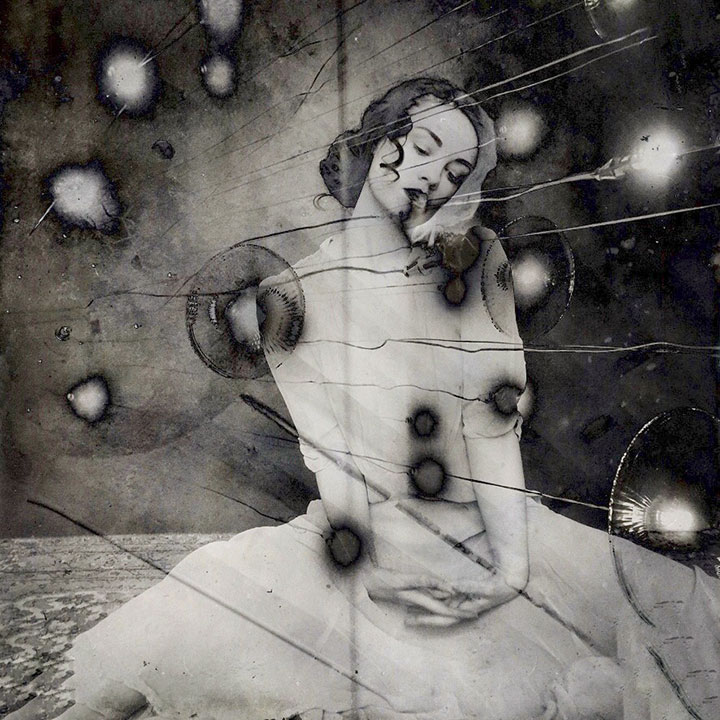






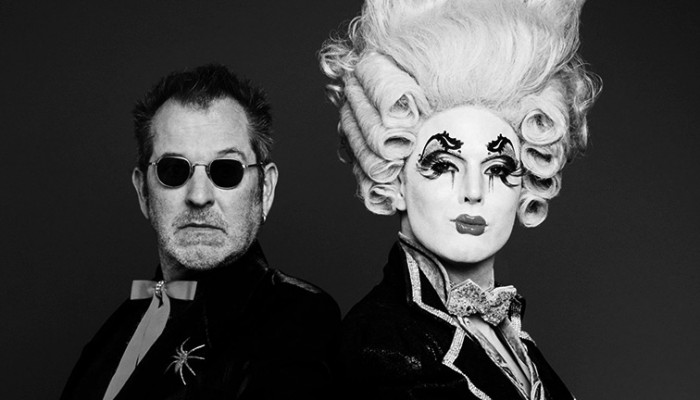


 Jill Jepson is the author of
Jill Jepson is the author of 
 Stephanie Dickinson, an Iowa native, lives in New York City. Her work appears in Hotel Amerika, Mudfish, Weber Studies, Fjords, Water-Stone Review, Gargoyle, Rhino, Stone Canoe, Westerly, and New Stories from the South, among others. Her novel Half Girl and novella Lust Series are published by Spuyten Duyvil, as is her recent novel Love Highway, based on the 2006 Jennifer Moore murder. Heat: An Interview with Jean Seberg, was released in 2013 by New Michigan Press. Her work has received multiple distinguished story citations in the Pushcart Anthology, Best American Short Stories, and Best American Mysteries.
Stephanie Dickinson, an Iowa native, lives in New York City. Her work appears in Hotel Amerika, Mudfish, Weber Studies, Fjords, Water-Stone Review, Gargoyle, Rhino, Stone Canoe, Westerly, and New Stories from the South, among others. Her novel Half Girl and novella Lust Series are published by Spuyten Duyvil, as is her recent novel Love Highway, based on the 2006 Jennifer Moore murder. Heat: An Interview with Jean Seberg, was released in 2013 by New Michigan Press. Her work has received multiple distinguished story citations in the Pushcart Anthology, Best American Short Stories, and Best American Mysteries.
 Janice E. Rodríguez inhabits two realities—the rolling hills and broad valleys of her native eastern Pennsylvania, and the high, arid plains of her adopted land of Castilla-León in Spain. She currently teaches Spanish at Albright College in Reading, Pennsylvania. When she’s not teaching, writing, or gardening, she’s in the kitchen working her way through a stack of cookbooks. She can be found online at
Janice E. Rodríguez inhabits two realities—the rolling hills and broad valleys of her native eastern Pennsylvania, and the high, arid plains of her adopted land of Castilla-León in Spain. She currently teaches Spanish at Albright College in Reading, Pennsylvania. When she’s not teaching, writing, or gardening, she’s in the kitchen working her way through a stack of cookbooks. She can be found online at 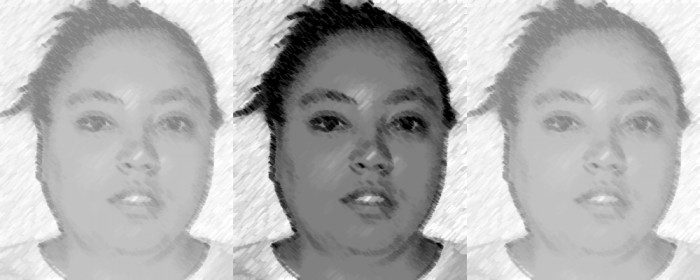
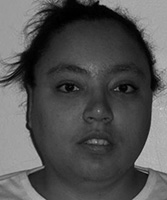 Abigail George is the author of ‘Africa Where Art Thou’ (2011), ‘Feeding the Beasts’ (2012), ‘All About My Mother’ (2012), ‘Winter in Johannesburg’ (2013), ‘Brother Wolf and Sister Wren’ (2015), and the forthcoming ‘Sleeping Under Kitchen Tables in the Northern Areas’ (2016). Her poetry has been widely published from Nigeria to Finland, and New Delhi, India to Istanbul, Turkey. Her fiction was nominated for the Pushcart Prize. She briefly studied film and television production at the Newtown Film and Television School opposite the Market Theater in Johannesburg. She is the recipient of writing grants from the National Arts Council (Johannesburg), the Centre for the Book (Cape Town), and ECPACC (Eastern Cape Provincial Arts and Culture Council) (East London). She writes for Modern Diplomacy, blogs with Goodreads, and contributed to a symposium for a year on Ovi Magazine: Finland’s English Online Magazine.
Abigail George is the author of ‘Africa Where Art Thou’ (2011), ‘Feeding the Beasts’ (2012), ‘All About My Mother’ (2012), ‘Winter in Johannesburg’ (2013), ‘Brother Wolf and Sister Wren’ (2015), and the forthcoming ‘Sleeping Under Kitchen Tables in the Northern Areas’ (2016). Her poetry has been widely published from Nigeria to Finland, and New Delhi, India to Istanbul, Turkey. Her fiction was nominated for the Pushcart Prize. She briefly studied film and television production at the Newtown Film and Television School opposite the Market Theater in Johannesburg. She is the recipient of writing grants from the National Arts Council (Johannesburg), the Centre for the Book (Cape Town), and ECPACC (Eastern Cape Provincial Arts and Culture Council) (East London). She writes for Modern Diplomacy, blogs with Goodreads, and contributed to a symposium for a year on Ovi Magazine: Finland’s English Online Magazine.
 Raised in a French fishing village, P.M. Neist acquired her storytelling skills from a colorful cast of spirited relatives. After moving to the United States, Neist switched to writing in English. Soon after, she started drawing. She is the author and illustrator of Barely Behaving Daughters, an illustrated alphabet of girls who like to do as they please.
Raised in a French fishing village, P.M. Neist acquired her storytelling skills from a colorful cast of spirited relatives. After moving to the United States, Neist switched to writing in English. Soon after, she started drawing. She is the author and illustrator of Barely Behaving Daughters, an illustrated alphabet of girls who like to do as they please.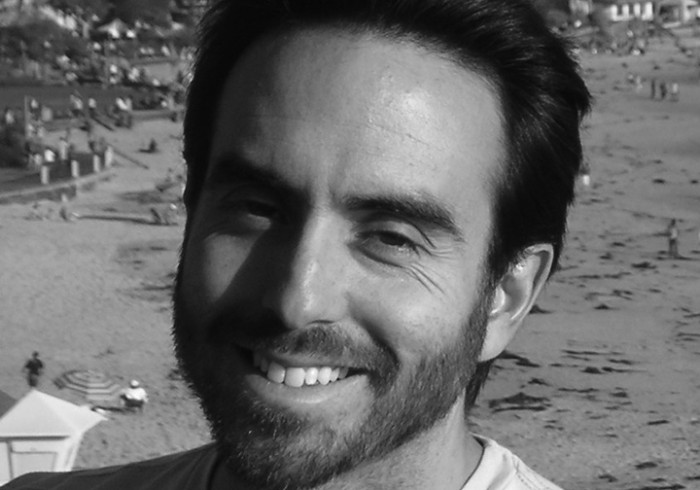
 Taylor García’s short fiction has appeared in Chagrin River Review, Driftwood Press, Fifth Wednesday Journal, Hawaii Pacific Review, McSweeney’s Internet Tendency and Caveat Lector. He also writes the weekly column Father Time at the
Taylor García’s short fiction has appeared in Chagrin River Review, Driftwood Press, Fifth Wednesday Journal, Hawaii Pacific Review, McSweeney’s Internet Tendency and Caveat Lector. He also writes the weekly column Father Time at the 











